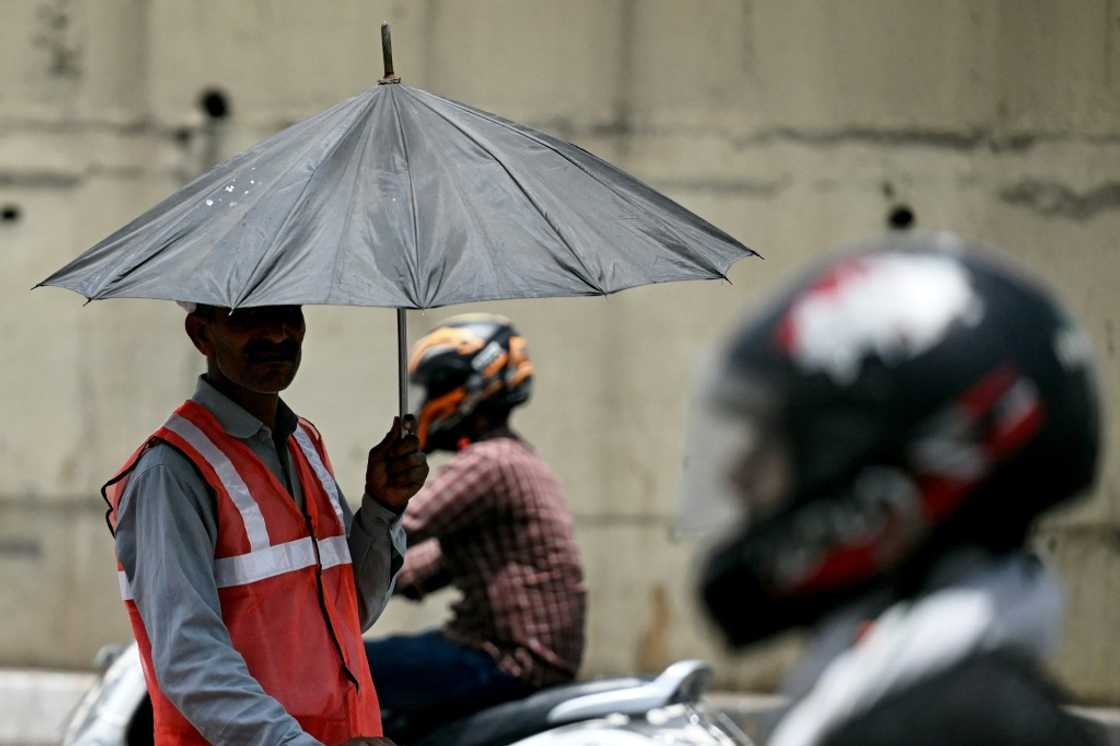Rich nations met $100 bn climate finance goal two years late: OECD

Source: AFP
Wealthy countries met their target of providing $100 billion in annual climate aid to poorer nations for the first time in 2022, two years later than promised, the OECD said Wednesday.
The failure to raise the money on time has eroded trust in climate negotiations and the OECD report comes as nations race to set a more ambitious fundraising goal by November.
In 2009, developed nations promised to raise $100 billion a year by 2020 to help low-income countries invest in clean energy and cope with the worsening impacts of climate change.
More than a decade later this target was finally met for the first time in 2022 with $115.9 billion raised, the Organisation for Economic Co-operation and Development said.
The OECD, which tracks official figures on climate finance pledges, said climate finance from high-income countries -- those most responsible for global warming to date -- had increased roughly 30 percent from 2021 when $89.6 billion was raised.
"This strong performance clearly demonstrates that developed countries are delivering and taking serious action," a spokesperson for the US State Department said.
PAY ATTENTION: Click “See First” under the “Following” tab to see YEN.com.gh News on your News Feed!
Fraction of need
Climate finance can come from governments in the form of bilateral aid, multinational development lenders like the World Bank, or the private sector.
Most of the $100 billion disbursed in 2022 went to climate action that limits the release of heat-trapping greenhouse gases, the OECD said, mainly in clean energy and transport improvements.
The $100 billion target is nowhere near what experts say developing nations will need for renewable energy and adaptation measures like coastal defences against rising seas.
A panel convened by the UN estimates these countries -- excluding China -- will need $2.4 trillion a year by 2030 to meet their climate and development needs.
Climate finance is a thorny issue at the annual UN climate talks and negotiators have been working this year to try and set a new goal to replace and go beyond the $100 billion target.
The hosts of this year's COP29 in gas-rich Azerbaijan have made the matter a priority and hope to have an ambitious agreement inked during the summit in November.
"It is always essential to fulfil past promises, but even more so this year," said COP29 president-designate Mukhtar Babayev.
Negotiators meet next week in Bonn for crucial mid-year talks where sticking points over this new financial target will be thrashed out.
Meeting the $100 billion goal was an "important step forward", said Germany's special climate envoy Jennifer Morgan.
"I hope that this can help build a little bit of confidence... in those negotiations that we do take those commitments seriously," she told AFP.
'Creative accounting'
Some parties want China and other major emerging economies to chip in, while there is disagreement over how much should be raised, how the money is managed, and who is eligible for it.
Many developing economies least to blame for the greenhouse gases that stoke global warming are among the most exposed to the costly and destructive effects of worsening weather extremes.
Some want their future climate action to be contingent on receiving financial aid.
India, for example, has proposed that developed countries provide $1 trillion in climate finance every year from 2025 -- 10 times the current target.
Donors have also been accused of repackaging existing aid pledges as climate finance and making the money largely available as loans instead of unconditional grants.
Climate activist Harjeet Singh said the process had been "riddled with ambiguity and inadequacies".
"This isn't the time for creative accounting or fiscal loopholes. Rich countries urgently need to step up, clear these smokescreens, and deliver real, substantial financial support," he said.
New feature: Сheck out news that is picked for YOU ➡️ click on “Recommended for you” and enjoy!
Source: AFP




